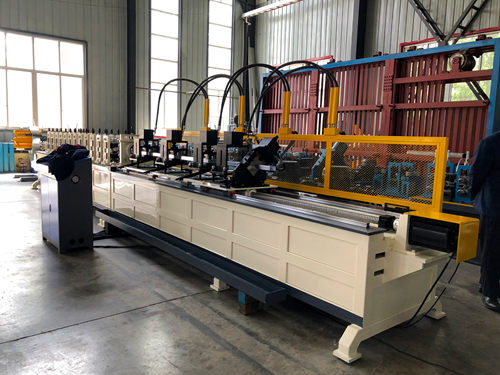
The Significance of Steel Coils in Modern Industries
Steel coils are an essential component in a variety of industries, serving as a fundamental raw material for manufacturing and construction. Their versatility and strength make them ideal for numerous applications, ranging from automotive parts to building materials. The production and distribution of steel coils involve a complex interplay of technology, economics, and logistics, which highlights their importance in today’s industrial landscape.
Understanding Steel Coils
Steel coils are produced through a process called coiling, which involves rolling steel sheets into large rolls. These coils can vary in thickness, width, and finish, depending on their intended use. There are several types of steel coils, including hot-rolled, cold-rolled, galvanized, and stainless steel coils. Hot-rolled coils are produced at high temperatures, which makes them easier to shape and form, while cold-rolled coils undergo additional processing at lower temperatures to achieve a smoother finish and tighter tolerances. Galvanized coils are coated with a layer of zinc to prevent rust and corrosion, making them highly sought after in construction and outdoor applications.
Applications of Steel Coils
The applications of steel coils are vast and varied. In the automotive industry, for instance, steel coils are used to manufacture essential components such as frame structures, body panels, and suspension systems. The lightweight yet strong characteristics of these coils contribute to the overall efficiency and performance of vehicles. Additionally, the use of galvanized steel coils in automotive manufacturing helps enhance the durability of vehicles, reducing the need for frequent repairs and maintenance.
In the construction sector, steel coils play a crucial role in creating structural elements such as beams, columns, and reinforcements. The strength and resilience of steel make it an excellent choice for buildings, bridges, and other infrastructure projects. Furthermore, steel coils are also used in the production of roofing materials, siding, and other exterior finishes, ensuring that structures can withstand harsh weather conditions.
Moreover, in the appliance and machinery sectors, steel coils are used to manufacture a range of products, including refrigerators, washing machines, and industrial equipment
. The smooth finish of cold-rolled steel coils is particularly valued in these applications, as it enhances aesthetics and functionality.
Economic Impact
The steel coil industry significantly contributes to the global economy. As a crucial input for many manufacturing processes, the demand for steel coils drives economic activity across various sectors. The production of steel coils involves various stages, including mining for raw materials, smelting, forming, and finishing, each providing job opportunities and fostering economic growth.
Moreover, steel coils are traded globally, expanding their market reach and influencing international trade dynamics. Countries rich in iron ore and steel production, such as China, India, and Brazil, play pivotal roles in the global supply chain. Fluctuations in demand and supply can impact the prices of steel coils, which in turn affects industries that rely on them.
Sustainability and Innovation
In recent years, there has been a growing emphasis on sustainability within the steel coil industry. As industries strive to reduce their carbon footprints, manufacturers are exploring innovative ways to produce steel coils with lower environmental impacts. Techniques such as electric arc furnace (EAF) steelmaking, which recycles scrap steel, are gaining traction. This method not only reduces energy consumption but also decreases greenhouse gas emissions compared to traditional methods.
Furthermore, advancements in technology have led to improved production processes, enhancing efficiency and reducing waste. Industry 4.0 technologies, such as automation, artificial intelligence, and data analytics, are now being integrated into steel coil manufacturing to optimize operations and improve product quality.
Conclusion
In conclusion, steel coils represent a vital element of modern industrial processes. Their diverse applications, economic importance, and the evolving landscape of sustainability and technology underscore their significance. As industries continue to innovate and adapt to changing demands, the role of steel coils will undoubtedly remain crucial in shaping the future of manufacturing, construction, and beyond. Investing in the development and production of steel coils will be paramount as the world seeks to build a more resilient and sustainable economy.